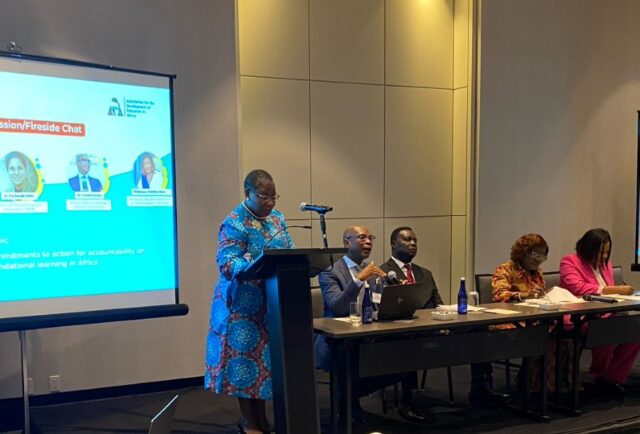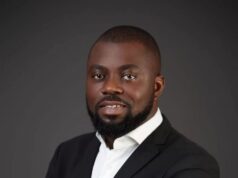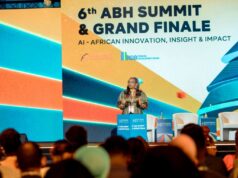…Four out of five children in Africa (nine out of ten in SSA) cannot read with understanding by age ten.
…African Ministers of Education showcase locally-owned solutions that are delivering results.
…Innovative financing and more efficient resource allocation are needed to implement at scale.
…African Union acknowledges the learning crisis, commits to track progress, and advocates for reform.
…A growing number of African leaders and civil society call for a decade of education.
TUE SEPT 24 2024-theGBJournal|African leaders, the African Union, and Global development partners gathered in New York at the UN General Assembly today to showcase the transformational impact that prioritising foundational learning can have on the African continent.
The World Bank estimates that the learning crisis will result in $21 trillion of lost productivity globally if urgent action is not taken. However, if addressed, ensuring that our children are learning can add $6.5 trillion of additional global value by 2030. The crisis is most acute, and the opportunity is greatest, in Africa, where nine out of ten children are not currently able to read with understanding or do basic math by the age of ten.
Opening the African Union and Global Partnership for Education Presidential meeting in New York, African Union Commission Chairperson Moussa Faki acknowledged the need for a long-term focus on education, calling for an annual education convening at the AU Mission during the United Nations General Assembly meetings.
He said: “We must acknowledge that the formulation of annual themes is not enough, the journey is long and we need longer-term, innovative, and bold responses. We have unacceptable levels of education poverty at a time when more than 80% of our workforce in twenty years will be youth.”
Delivering a keynote speech, H.E. Prof Mohammed Belhocine, Commissioner for Education, Science, Technology and Innovation (ESTI) at the African Union reinforced the need for bold investments and called for an international effort to support Africa’s children and deliver global returns.
He said: “Foundational learning is an enabler for Africa’s long-term development and the key to unlocking the potential of millions of African children who will be the changemakers of tomorrow. 9 out of 10 children in Africa cannot read or do basic math by the age of ten.
This learning poverty undermines our collective efforts to achieve our Agenda 2063. The AU is committed to making foundational learning a key part of our agenda beyond 2024 and to tracking progress, providing support where needed, and continuing to advocate for comprehensive reforms.”
H.E. President Hakainde Hichelima of Zambia, an Association for the Development of Education in Africa (ADEA) continental champion for Foundational Learning said: “In 2050, at least one-third of all young people aged 15 to 24 years old will be born in Africa.
At present, four in five children are unable to read and understand simple text by the age of ten. This is unacceptable and we must urgently prioritise investments in education. These skills are the building blocks for every child’s academic and other forms of success. Collectively, we must set clear milestones beyond the 2024 year of education and ensure that no child in Africa is left behind.”
Former President of Malawi, H.E. Dr Joyce Banda said: “A continental crisis requires a continental response. We need more Heads of State to become champions for Foundational Learning. We need accountability mechanisms, and a robust peer review process will help us hold ourselves accountable for the promises we make to our children.
This is not just about education. Every goal we have set is dependent on achieving strong foundational learning. The prosperity we dream of will be built from the classroom, with a child learning to read and count. Let us commit today to make that dream a reality and unlock the potential of our continent.”
Former President of Tanzania and Chair of the Global Partnership for Education H.E. Jakaya Kikwete said: “We are the world’s youngest and fastest growing continent. By 2050 one in every four people will be an African. Our workforce will be bigger than China. We must equip them. If we fail to act we risk further disenfranchising them. A 1% improvement in learning outcomes can translate into a 7.2% improvement in economic growth. To unlock this potential we need focused investments. A relentless focus on learning, proper support for our educators, and strong partnerships.”
Moderating a panel of African Ministers of education implementing African-owned solutions to enhance learning outcomes, Dr. Obiageli Ezekwesili, Founder of Human Capital Africa asked Ministers to highlight the two most critical investments required to deliver results: “It’s clear from your contributions that African Ministers want innovative, evidence-based and targeted financing alongside the better and more effective and efficient use of existing resources.
They are clear that this will enable the teacher training, support, and deployment required to help children learn, using proven and efficient pedagogical approaches that work at scale while ensuring we generate and utilise data to inform the pathway to better learning outcomes and enabling accountability at all levels.”
Speakers and leaders at the events in New York built on previous calls made by Human Capital Africa, the Association for the Development of Education in Africa (ADEA) at the February AU Summit, and former African Presidents at the AU Mid-Year Summit in Accra in July 2024. These calls urge Heads of Government, through the African Union, to take the following decisive steps to address the learning crisis.
Declare that it is unacceptable that nine out of ten of our children are unable to read with understanding and do basic math by age 10.
Acknowledge that the delivery of Agenda 2063 and its social, economic, and developmental objectives is deeply connected with learning outcomes.
Recognise the transformative impact that foundational learning can have on continental productivity, empowering millions and driving economic growth.
Collectively commit to all children reading with comprehension and doing basic mathematics by the age of ten by 2030.
Take action to urgently implement cost-effective evidence-based solutions that can accelerate learning outcomes and be delivered within existing budget resources.
Expand the active use of available tools that allow countries to measure learning outcomes early, consistently, and comparatively.
Build a continental mechanism that allows countries, development partners, and citizens to hold each other accountable for learning outcomes and peer review progress.
X-@theGBJournal|Facebook-the Government and Business Journal|email:gbj@govbusinessjournal.com|govandbusinessj@gmail.com










